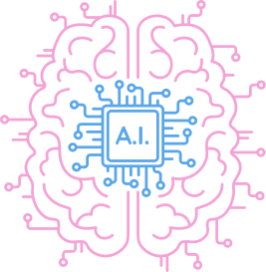Menu
Machine Learning
We help organizations drive business outcomes and improve operational efficiency with advanced ML development.
Our experts will help you in solving complex business challenges by facilitating data-driven decisions and building ML models. We utilize technologies, including Computer Vision, Natural Language Processing, Predictive Analytics, and accelerated hardware to create ML applications.
Our Approach
Understanding Requirements:
Articulating business needs for creating a base with a vision of developing a solution that will be beneficial for business. Forming a data science problem from the business problem.
Data Acquisition:
Data can come in all shapes and sizes, from CSV’s to audio clips anything can contain valuable information that can solve real problems. Gathering the right kind of data using technical and business expertise is a crucial step.
Data Engineering:
Enriching the data such that more insights can be drawn and creating data pipelines that are compatible with machine learning algorithms.
Model Building:
Identify the right technologies, architectures, and models for the problem. Creating baseline models that improve performances and reduces time to market. Build a scalable and end-to-end training pipeline with proper experiment tracking.
Evaluation and Deployment:
Launch and iterate while adding new features to the pipeline. Setting up the suitable inferencing architecture with monitoring to encounter issues like model drift. Having active learning mechanisms in place as per requirements.

Machine learning algorithms
Are modeled in many ways on human minds
Our Capabilities
Expert Systems
- Intelligent Risk Assessment
- Audit and Compliance
- Fraud detection
- Health predictions using IoT and Speech signals
Advanced Analytics
- Predictive and Prescriptive analytics
Intelligent Automation
- Process mining
- Robotic process automation
Computer Vision
From key points matching to semantic segmentation, we have a solution based on your problem. Some examples of our work include using object detection to detect signatures in scanned documents, using image alignment to extract specific information from forms, combining OCR with object detection to extract information from table images
Natural Language Processing
NLP is an extremely important area of our work. We use state of the art transformer-based networks to solve multiple problems like relation extraction, named entity recognition, and other sequences to sequence-based problems. Few examples of our work in this area include using BERT to perform aspect-based sentiment analysis on Amazon reviews, information extraction using a question-answering mechanism, combining OCR with named entity recognition and parts of speech recognition to understand temporal dependencies, negation markers.
Our Blog
